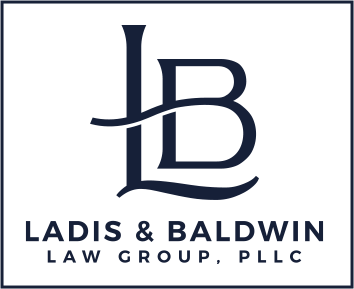
Always Here When You Need Us
Nassau County Corporate Lawyers
Former Prosecutors Helping You Resolve Your Real Estate Disputes
Corporate and real estate law is particularly nuanced, covering a range of issues like rental and lease agreements and housing rental and lease agreements. If you are dealing with corporate legal issues, contact Ladis & Baldwin Law Group for knowledgeable legal guidance. We have a deep knowledge of New York’s changing laws, and we always prioritize the client’s needs and interests. Whether you have questions about lease and rental agreements or other real estate concerns, let Ladis & Baldwin Law Group help.
Schedule a free consultation online to learn more about our corporate law practice. Serving Queens, Long Island, and Suffolk County.
Lease and Rental Agreements
New York law regulates what lease and rental agreements need to establish, such as anti-discriminatory provisions and security deposit limits. Recall that a lease, or a rental agreement, is a legal contract between the landlord and the tenant that establishes the obligations of each party, such as due dates for rent. Leases typically include the following:
- names of the parties involved in the lease (the landlord and tenant);
- the length of the lease (e.g., month-to-month, 1 year);
- the rental amount and due dates;
- address and description of the property;
- security deposit amount (below);
- utilities covered by the landlord.
It is also prohibited to discriminate against potential tenants on the basis of their race, creed, color, national origin, sex, age, disability, marital status, and familial status. In special circumstances, such as senior citizen housing, one- or two-family homes, and mobile home parks, the landlord may express a preference (e.g., based on age) for the tenant.
Reach out to our attorneys at Ladis & Baldwin Law Group online for a free consultation to discuss your case in more detail.
Security Deposit Laws
New York does not state a specific limit that landlords may charge for a security deposit. However, such security deposits are usually one months’ rent, and landlords may request an increase in the deposit if rent is later legally increased.
Landlords must hold security deposits in trusts. Commingling the security deposit with personal funds is strictly prohibited. If the property holds 6 or more tenants, the landlord must hold the deposit in an interest-bearing account by a banking organization.
Note that tenants are entitled to the interest that their security deposit earns during tenancy, but a landlord may collect a 1% administration fee for handling the deposit. Nonetheless, the landlord must return the entire security deposit and any interest earned within a reasonable time after the lease terminates. If the tenant damaged the apartment or had any unpaid rent, the landlord may deduct a reasonable cost of repairs and reimbursement for the rent from the deposit.
If you have questions about corporate or real estate issues, do not hesitate to contact our team at Ladis & Baldwin Law Group for legal support. The above are only a couple of examples of real estate matters that we handle in New York, and we can lend a legal hand to whatever issues you are facing. Our clients are our top priority, and we will do our best to strategize a case that asserts your rights and protects your real estate interests.

Why Choose Us? See What Sets Us Apart
-
Dedicated to Our Community
We grew up on Long Island and care deeply about this community and the people here. We are dedicated to investing and serving our clients and providing them with the best service possible.
-
Former Prosecutors Who Know Both Sides of the Law
Our team has worked together for years and used to work at the District Attorneys Office together as former prosecutors. This experience provides us with unique insight of both sides of the law to know how to build the best possible case.
-
Extensive Knowledge About New Procedures
COVID, new discovery laws, and the bail reform act have changed the legal world as we know it. Our firm knows these new laws and procedures inside and out, so we know how to take advantage of them.

